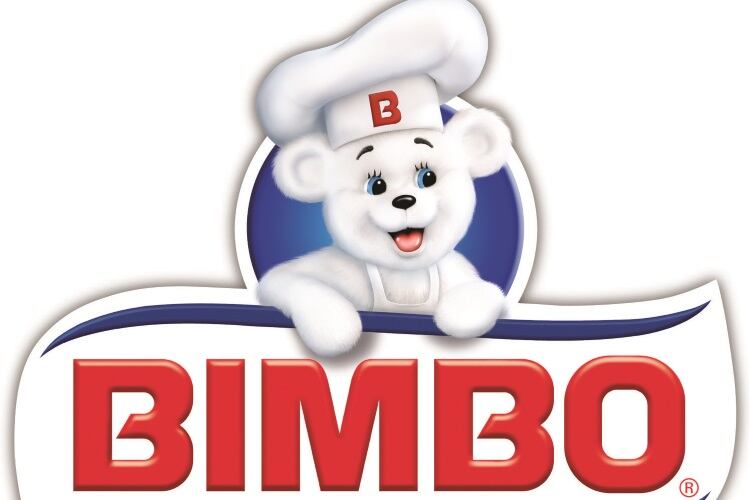According to Daniel J. Servitje, Bimbo’s CEO and chairman of the Board, the world’s largest bakery company saw ‘extraordinary’ run rates in its core business, and not only grew market share but realised volume growth across multiple categories, mainly snacks, confectionery, buns and rolls, and pastries.
The Mexico-headquartered company generated record profits in the second quarter ended June 30 while boosting return on equity by 280 basis points. In pesos terms, net sales declined 2.9% to 83.8 billion pesos ($4.22bn), primarily attributed to the peak in panic-buying in the second quarter of 2020
“I would like to highlight that we are cycling difficult comparisons, driven by the pandemic induced buying, which occurred in some of our geography starting in March of last year,” said Servitje.
Excluding the effects of foreign exchange rate market movements, sales for the SQ20 increased by 6.6% versus SQ19.
The company’s adjusted EBITDA reached an all-time high and EBITDA margins widened by 120 basis points, to 14.4%.
Gross profit slipped 4.1% to 45.02 billion pesos ($2.27bn), while operating income rose 2.5% to 7.05 billion pesos ($355m), with productivity savings coming in from restructuring investments, distribution efficiencies and cost-cutting projects, as well as lower COVID-19 related expenses.
As the post-pandemic trends evolve, Servitje expects a significantly higher inflationary environment with increases in commodities, freight and labour costs.
“We have been taking actions to cover these cost increases across our different geographies,” he told analysts on the conference call.
“We have been very proactive on understanding the impacts that we had from our commodity costs and other inputs. And we have been able to address them in the different markets through different levers. One, obviously, is pricing. And another lever is trade optimisation or revenue growth management. And finally, in some cases also, we have complemented that with productivity initiatives.”
He noted “it obviously varies by country and by channel.”
Regional breakdown
North America
North American sales were up 0.9%, reflecting the strong branded product sales, market share gains in several categories and rebounding foodservice business. Measured against 2019, second-quarter sales were up 18% in peso terms and 12.5% in dollar terms.
Operating income was 2.8 billion pesos ($140m) in the second quarter, down 31% from 4.1 billion pesos from the year prior, but up sharply from 1.3 billion pesos in April-June 2019. Sales were 42.7 billion pesos ($2.15bn), down 13% from 49.1 billion a year earlier.
Adjusted EBITDA was down 11% and EBITDA margin widened to 40 basis points to 13.3%.
“The business performed very well during the quarter, led by sweet baked goods, buns and rolls and snacks,” said Servitje.
“Our front-line execution was strong, and we continue to manage trade promotions prudently to maximise return on investment. Our top-line run rate when compared to pre-pandemic levels were very strong. The strength was driven by consumer demand, increased household penetration and the investments we have made and continue to make in our main brands. The private label run rate has remained soft, while foodservice is beginning to rebound as schools and restaurants manage reopenings.”
Bimbo used the second-quarter financial results to announce the acquisition of Emmy’s Organics, a US market leader in ultra-premium organic cookies and a major player in gluten-free cookies, available in 20,000 stores across the US, as well as online. Terms of the deal were not disclosed.
Mexico
Sales rose 14.7%, driven by sweet baked goods, bread bars and snack categories. Adjusted EBITDA margin expanded 210 basis points, thanks to the implementation of digital solutions across the supply chain.
“We have started to see a gradual recovery of the convenience, institutional, foodservice and vending channels, while the supermarket and traditional channels continue to post strong results,” added Servitje.
Latin America
The 1.7% sales decline in pesos was mostly attributable to the FX rates translation effect, but without it, sales increased almost 13% driven by growth in almost every country, with double-digit sales growth in Chile, Peru and Paraguay.
Not as rosy, but still encouraging were Brazil’s results, while Columbia’s results were impacted by social unrest and Argentina’s by a fire, which closed the plant.
“We remain optimistic given the continued development of our core categories across the region, investments in our brands, in our CapEx productivity initiatives, market penetration opportunities, and the increase in our distribution footprint across the 15 countries to accelerate profitable growth.”
EAA
Sales increased 13.2%, following the strategic acquisition of Cerealto Siro Foods’ Paterna plant in Valencia in October 2019, and the Medina del Campo plant in Spain earlier this year. The latter is dedicated to the manufacture of sweet baked goods for the country’s largest retailer Mercadona.
According to Servitje, the UK experienced good organic growth and Bimbo QSR started showing strong recovery throughout the region after constraints from lockdown.
“The adjusted EBITDA margin expansion of 110 basis points resulted from strong operating performance in the QSR business, as it is recovering from the depths of the pandemic and also because of the acquisitions we made in Iberia.”
Leading the green fight
On the sustainability front, the company continued to lead the way in the bakery industry towards green energy and finalised the transition of its operations in Chile and Panama to 100% renewable electricity.
“With this, 90% of the electricity that we consume from our 2017 baseline comes from renewable sources. And more than half of all our businesses use 100% renewable electricity,” said Servitje.
It was also recognised by Kantar’s Brand Footprint Ranking 2021 as the most chosen food brand within households in Mexico and Latin America, and one of the most chosen globally.
In summary, Servitje said, “We’re confident that despite the inflationary headwinds we're facing, our brands will continue to resonate with consumers and the breadth of our portfolio positions us well for the future.
“As we move forward, we will continue investing in our associates, our brands, in the entire value-chain in our sustainability strategy and in our digital transformation projects to achieve our vision.”



